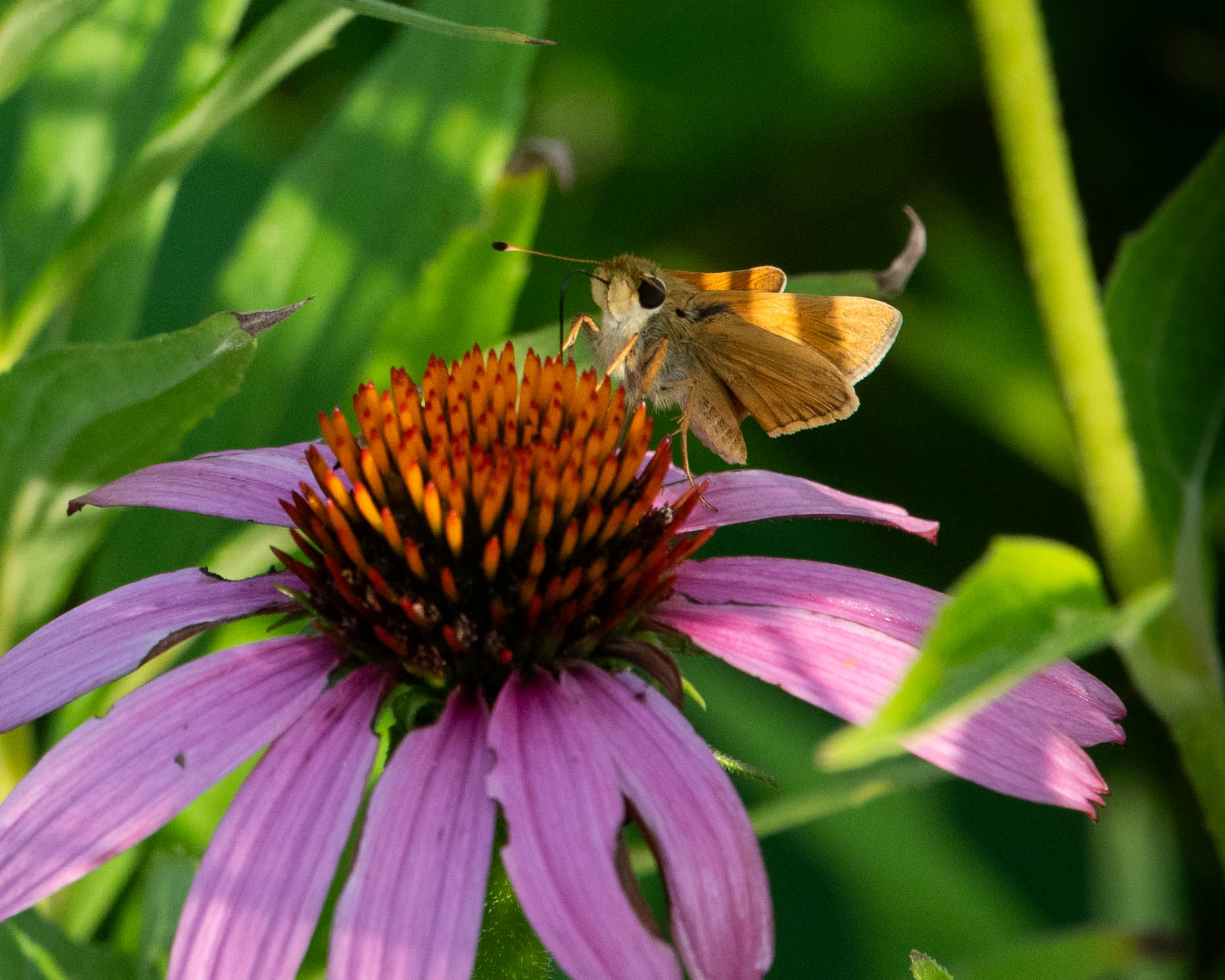Author: Leanne Tippett Mosby, Sustainability Manager
Bee Campus Affiliate: University of Missouri
USDA Plant Zone: 6a
My favorite native pollinator plants: Many of the plants in University of Missouri pollinator patches pictured here are listed in the Missouri Prairie Foundation’s GrowNative! program’s “Top 10 Native Plants to Support Bees in Summer.” These plants are denoted by the 🐝 in the caption.
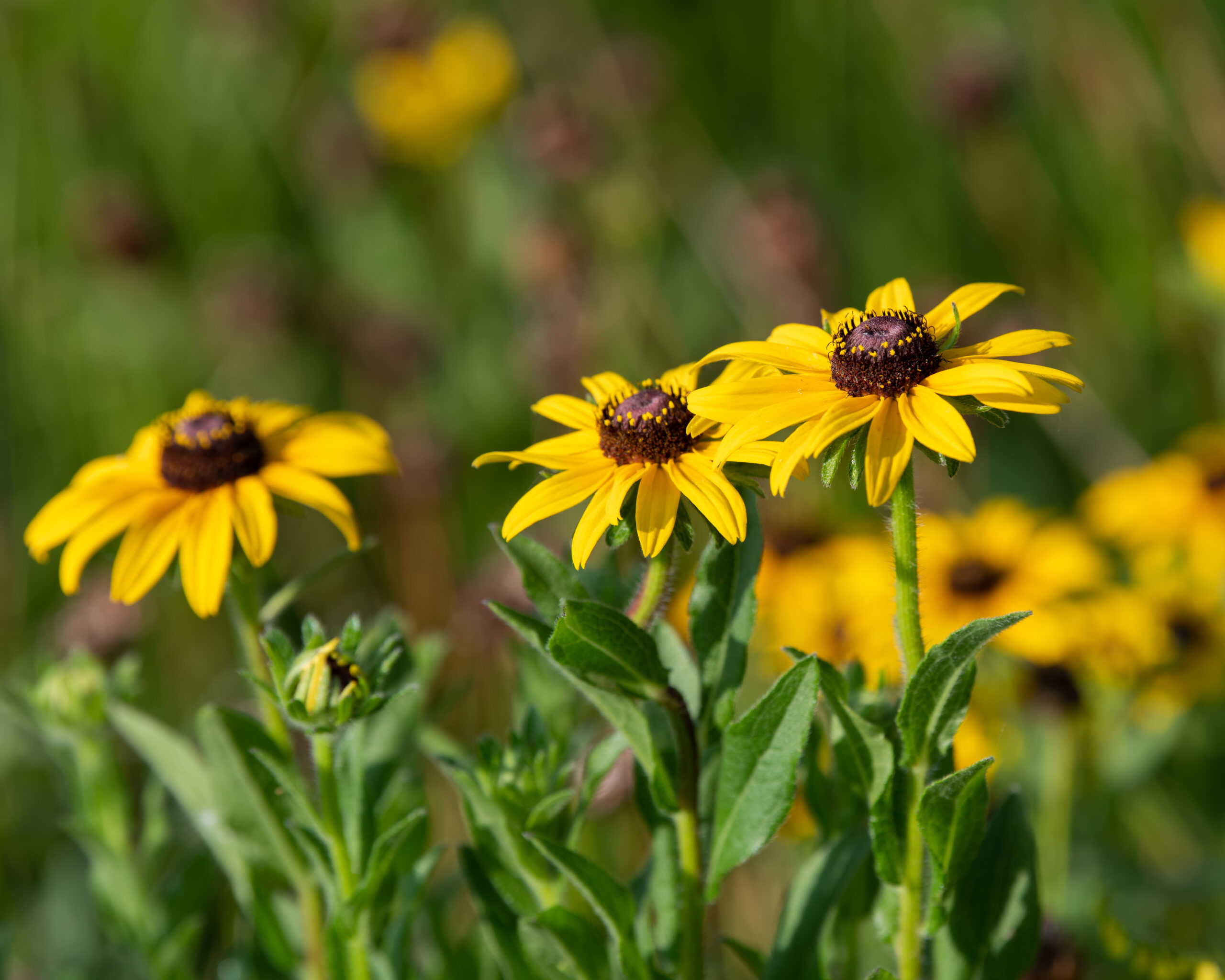
From the 1957 purchase and preservation of a 146-acre tract of virgin tallgrass prairie, to the ongoing efforts of campus faculty, staff and students to engage the broader public, University of Missouri (MU) has long been a leader promoting land stewardship in harmony with nature. The following are some highlights of efforts on campus and beyond aimed at pollinator conservation.
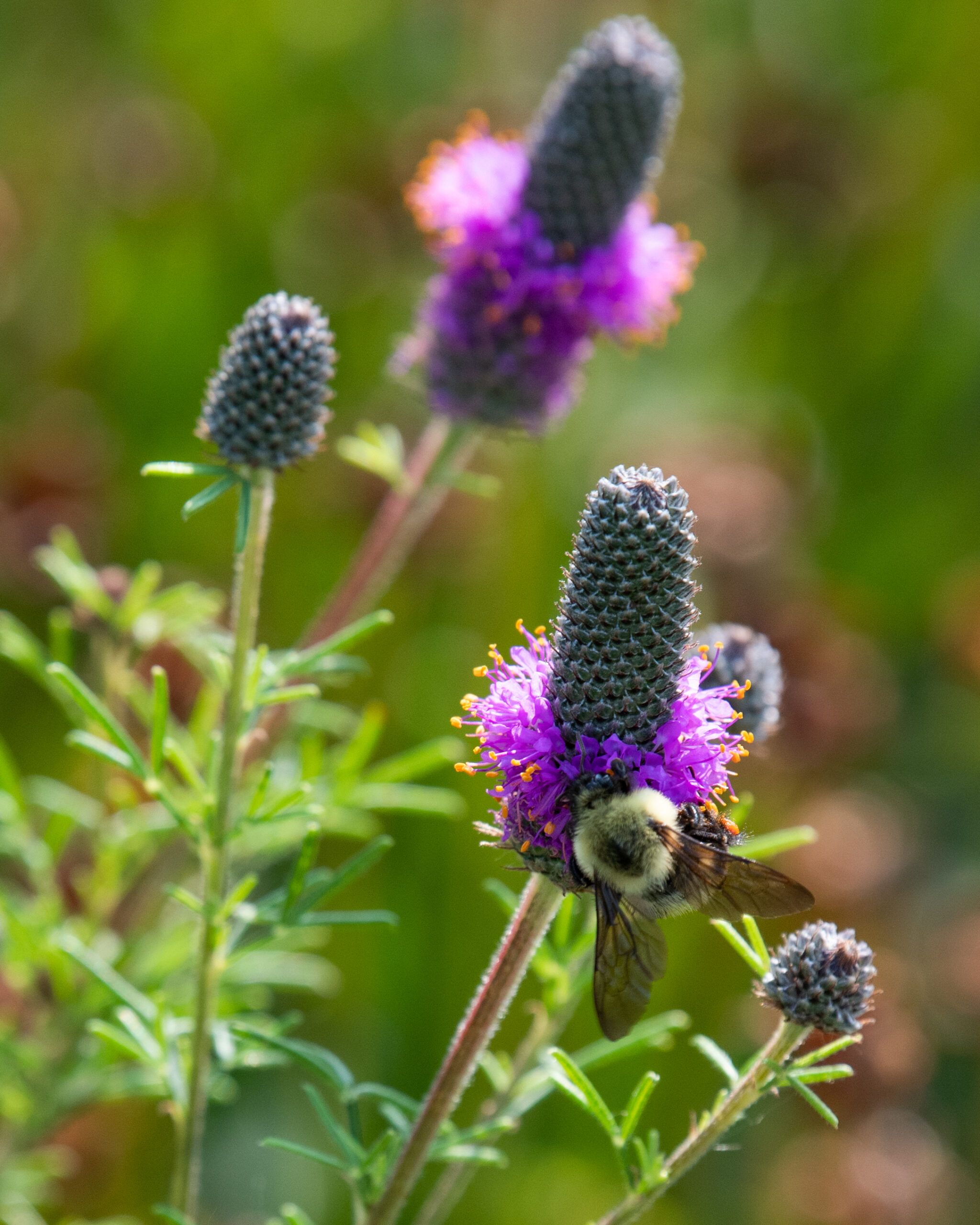
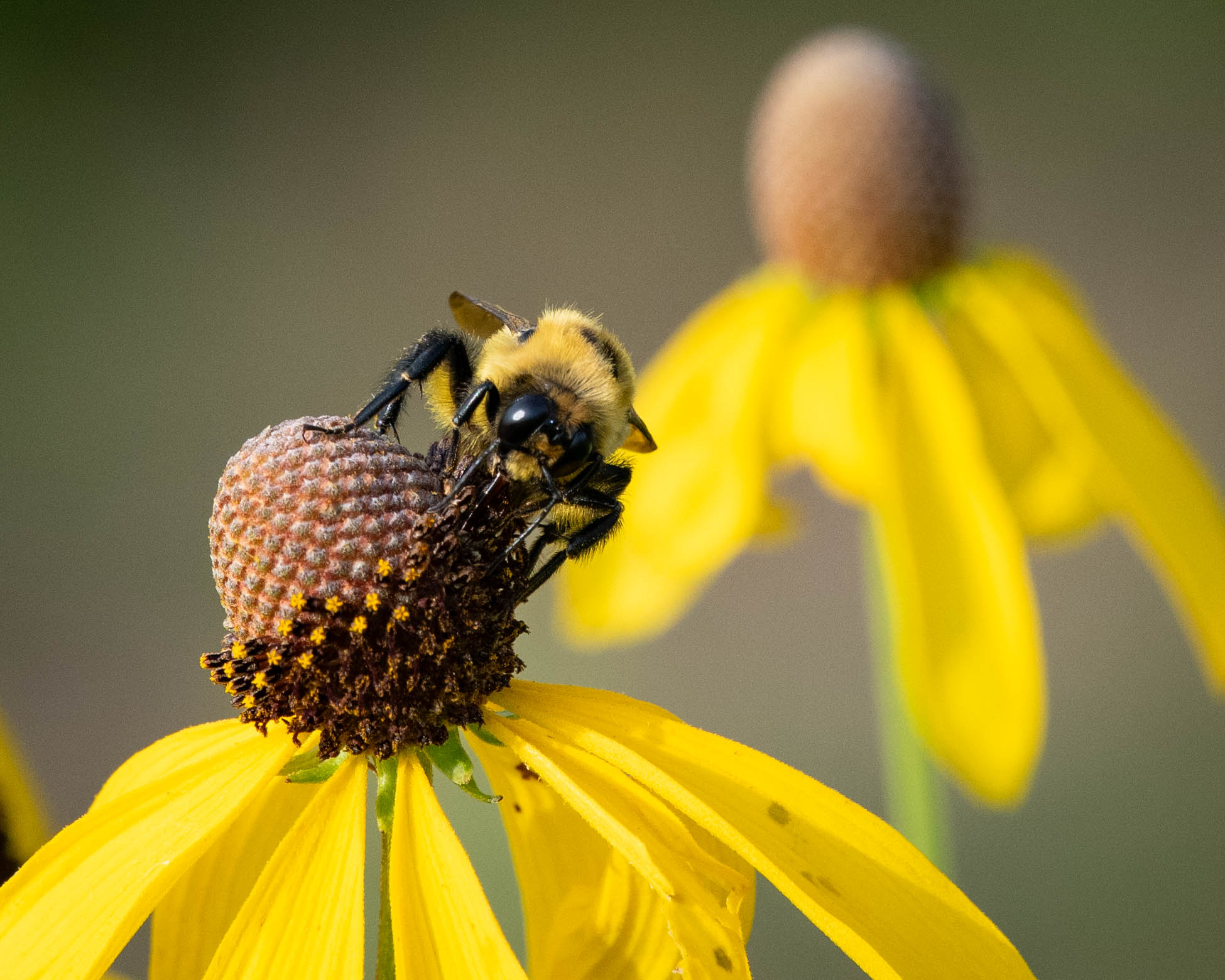
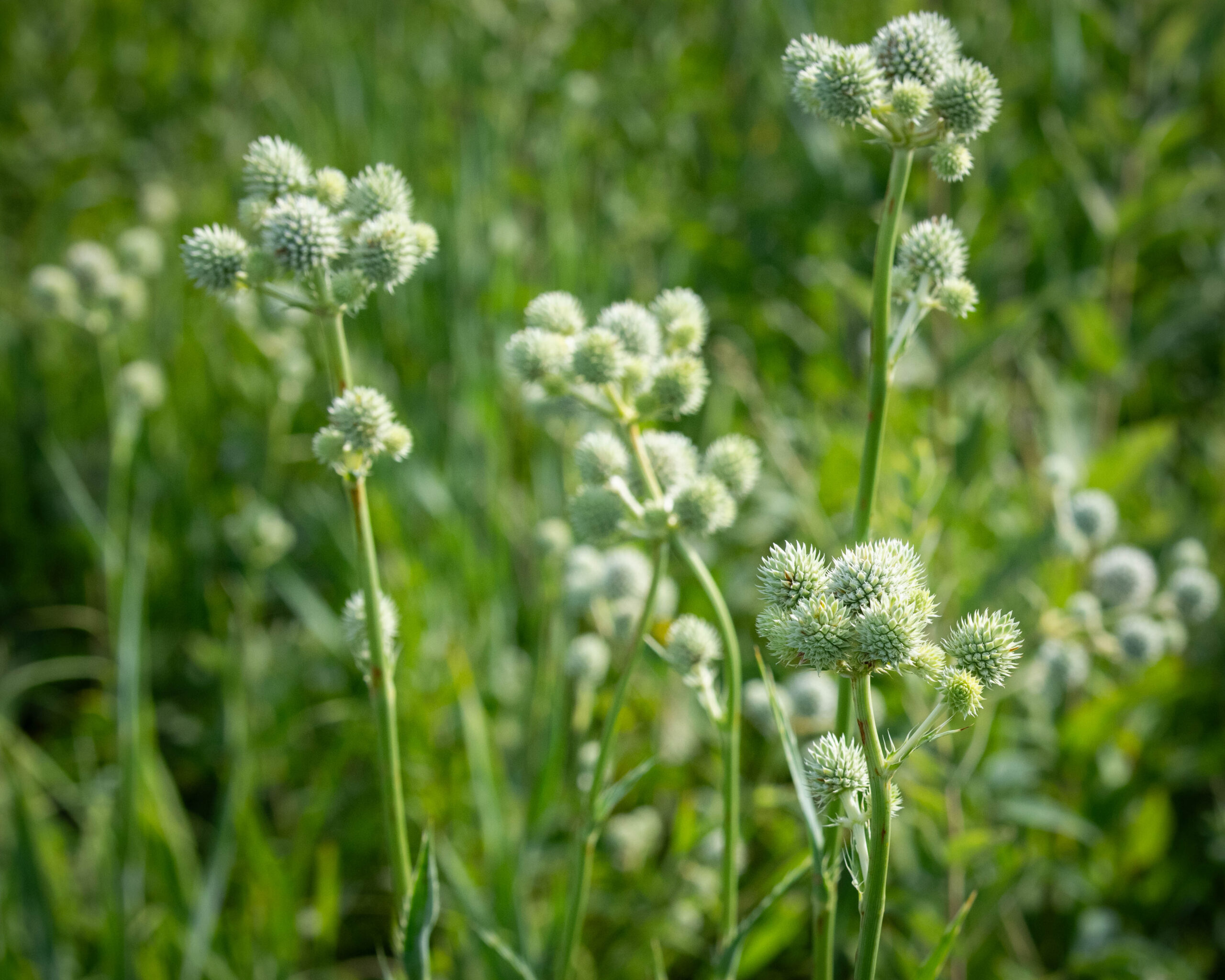
The campus itself is a recognized botanic garden, which serves as a public and student resource for the collection, display, interpretation, and conservation of plants suited to central Missouri. The Mizzou Botanic Garden board of directors recently completed a three-year strategic plan, which emphasizes increasing outreach to the public, students, parents, faculty, and visitors.
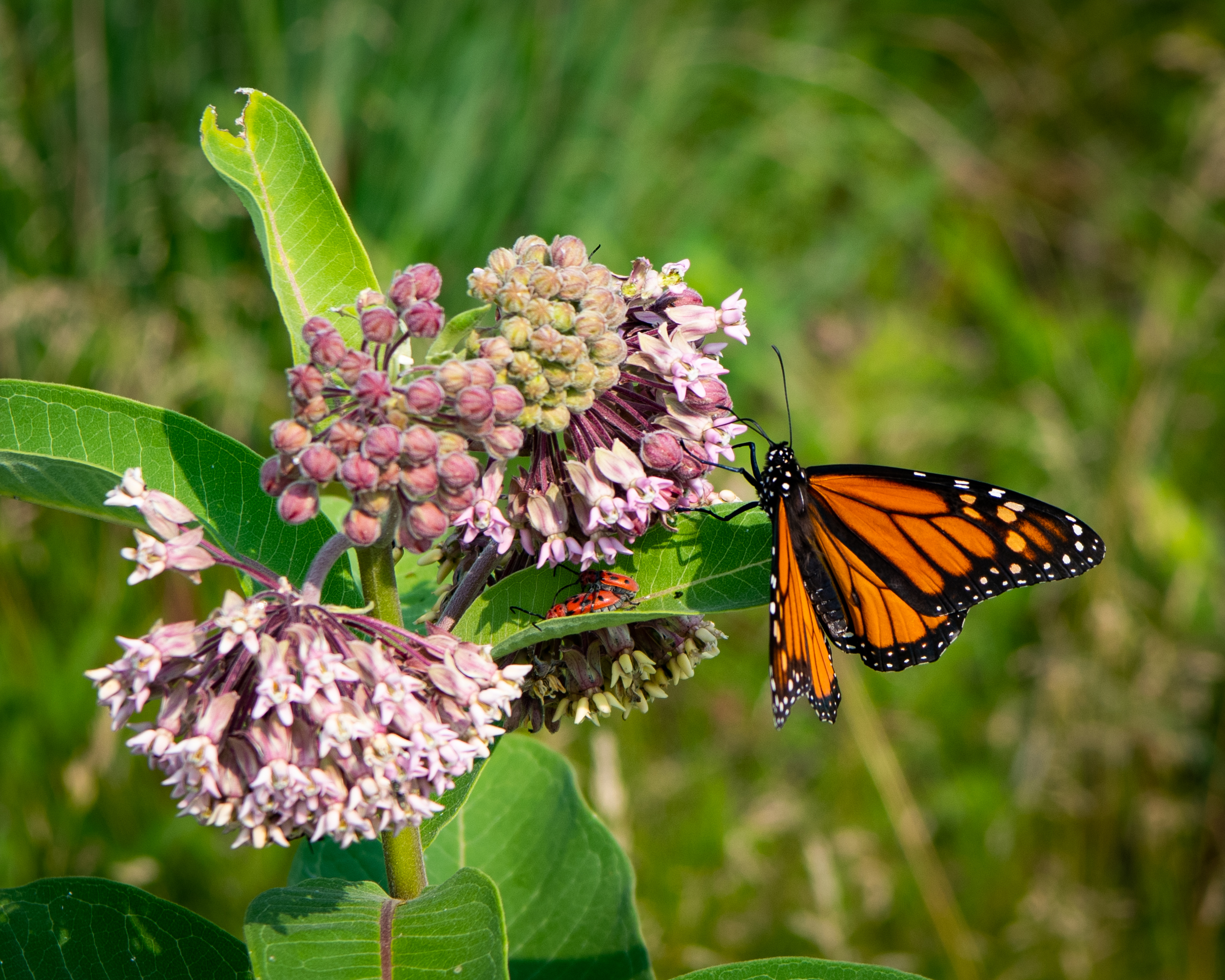
The garden also partners with important conservation organizations in Missouri. The garden is an institutional member of GrowNative! – a program of the nonprofit Missouri Prairie Foundation in partnership with the Missouri Conservation Department that aims to protect and restore biodiversity by promoting the use of native plants in urban, suburban, and rural developed landscapes. The garden is also a member of Missourians for Monarchs, a collaboration of nonprofits, government agencies, and private businesses with a goal of creating and maintaining 19,000 acres of pollinator habitat annually for the next 20 years.
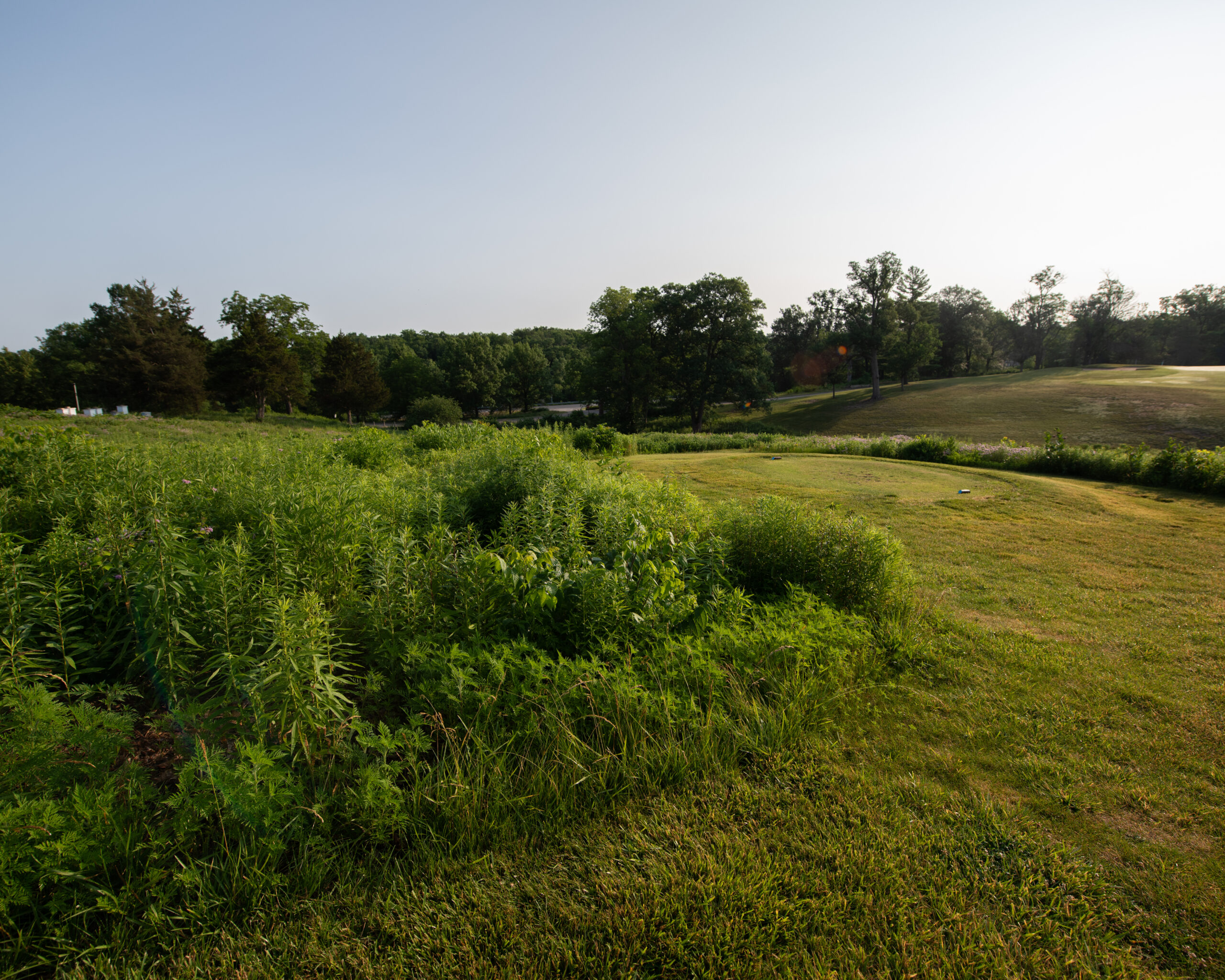
Moving out from the central campus and the garden you’ll find a haven for pollinators at MU’s A.L. Gustin Golf Course. Through the vision, innovation, and hard work of the recently retired director of golf operations Jim Knoesel and golf course superintendent Isaac Breuer, the 18-hole course has transformed into a sanctuary for bees, birds, and native plants over the last several decades. Recognized as an Audubon Cooperative Sanctuary since 1997, Knoesel and Breuer haven’t rested on their laurels. Just last year, they partnered with a local chapter of Quail Forever to install yet another pollinator plot, bringing the total area of pollinator habitat to approximately 15 acres. As has been their standard practice, they held an educational event in conjunction with the installation; this time bringing out about 25 kids and 20 adults with Kids In Nature Daily (KIND) to help with the planting.
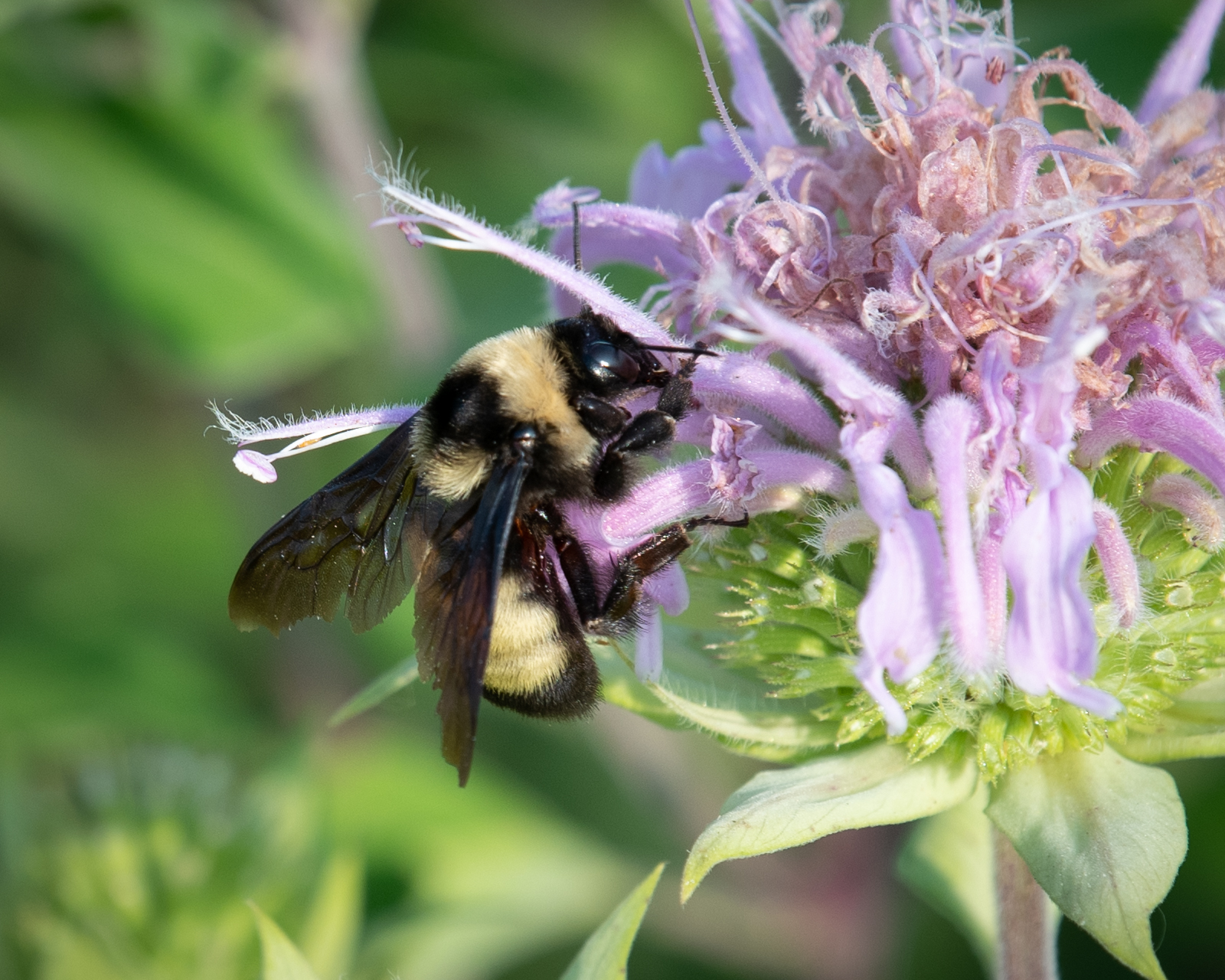
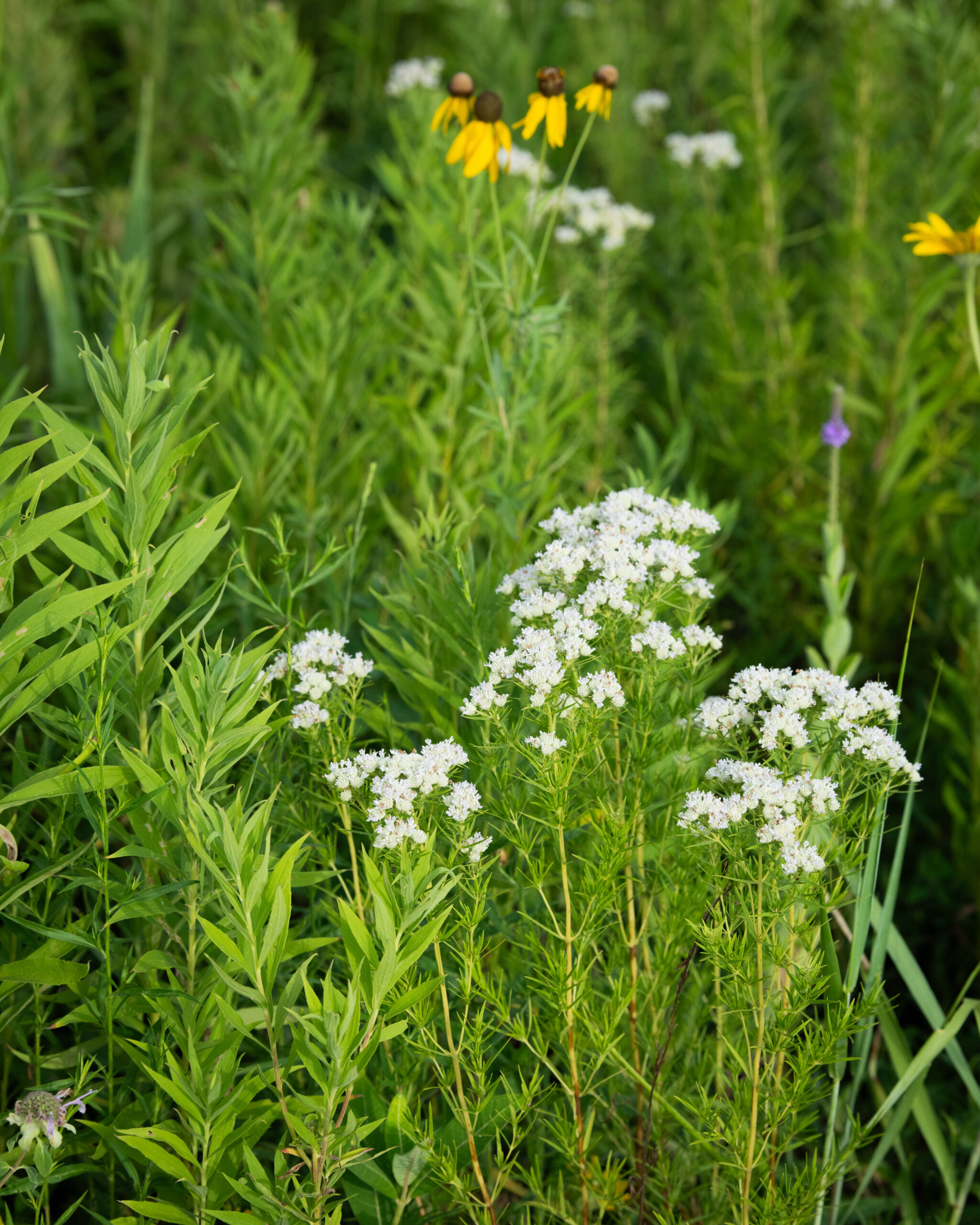

This hard work serves not only pollinators but provides an oasis of natural landscapes and wildlife to the delight of the humans hitting the links. Golfers are treated to a range of beautiful native wildflowers that change with the seasons. Wild bergamot, foxglove beardtongue, common milkweed and butterfly weed, various coneflowers, compass plant, slender mountain mint, Culver’s root, black-eyed Susan, false sunflower, liatris, goldenrod, and various asters are just a few of the natives providing an ever-changing buffet for pollinators and an evolving feast for the eyes from early spring through late fall. It’s also easy to catch a glimpse of Missouri’s state bird, the stunning Eastern bluebird, as Knoesel and Breuer have installed 26 bluebird houses almost three decades ago and have counted roughly 3,500 fledglings in that time.
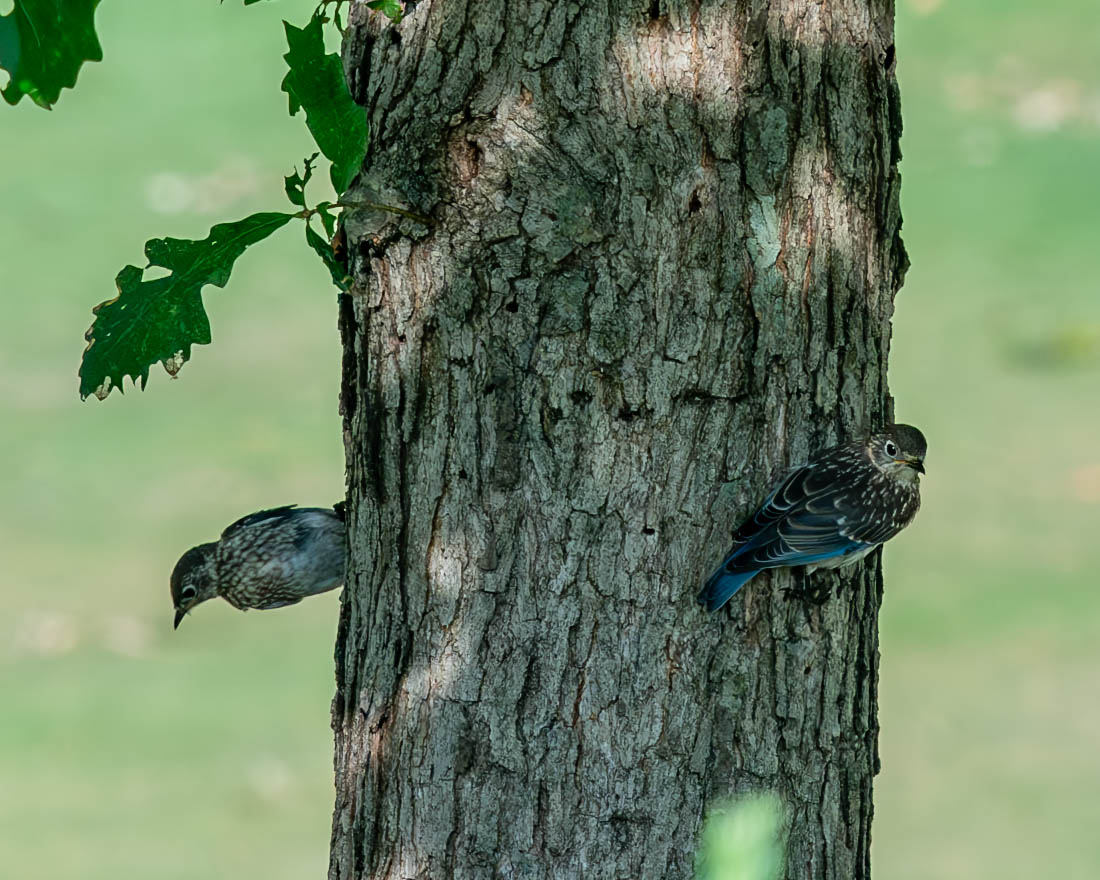

As a land grant institution, an important part of MU’s mission is to deliver practical benefits of education and research beyond its campus borders. In keeping with this mission, MU Extension offers several programs to promote learning among the public about ecology and the environment. Two of these programs particularly relevant to pollinators and natural landscapes include:
- Master Naturalist program: In partnership with the Missouri Department of Conservation, this program allows individuals to meaningfully contribute to conservation efforts and awareness in their local communities through training and volunteer opportunities. Almost 3,000 volunteers have been trained in this program since its inception in 2004. In 2022 alone, volunteers provided 57,070 hours of volunteer service – equivalent to 32 full-time equivalents (FTEs) of professional time. The cumulative economic impact of this volunteer service since inception of the program is over $23 million! (Source: 2022 Annual Report, Missouri Master Naturalist program).
- Master Pollinator Steward program: The United States Department of Agriculture (USDA) and the USDA Natural Resources Conservation Service provided grant funds to develop the manual for this educational program. Extension partners with beekeeping and conservation groups to offer this program, which includes hands-on activities and classroom presentations on topics such as insect ecology and integrated pest management, the relationship between plant and pollinator, honey bees and native pollinators, threats to pollinators, and conservation measures.
Sustain Mizzou, the student-run environmental program provides opportunities for Tigers to engage in a wide variety of sustainability initiatives, including a community garden they maintain in partnership with the Child Development Lab and Mizzou Master Gardeners.
With the many staff, faculty, and students involved in advocating for measures to promote pollinator conservation, MU is well-positioned to play a key role in improving biodiversity and climate resiliency to the benefit of wildlife and humans alike.
